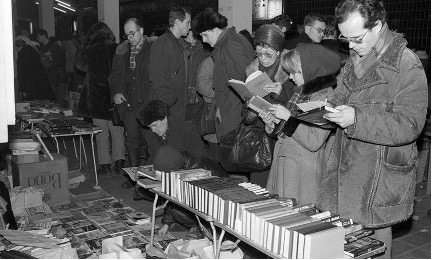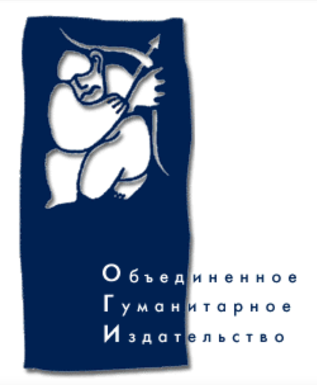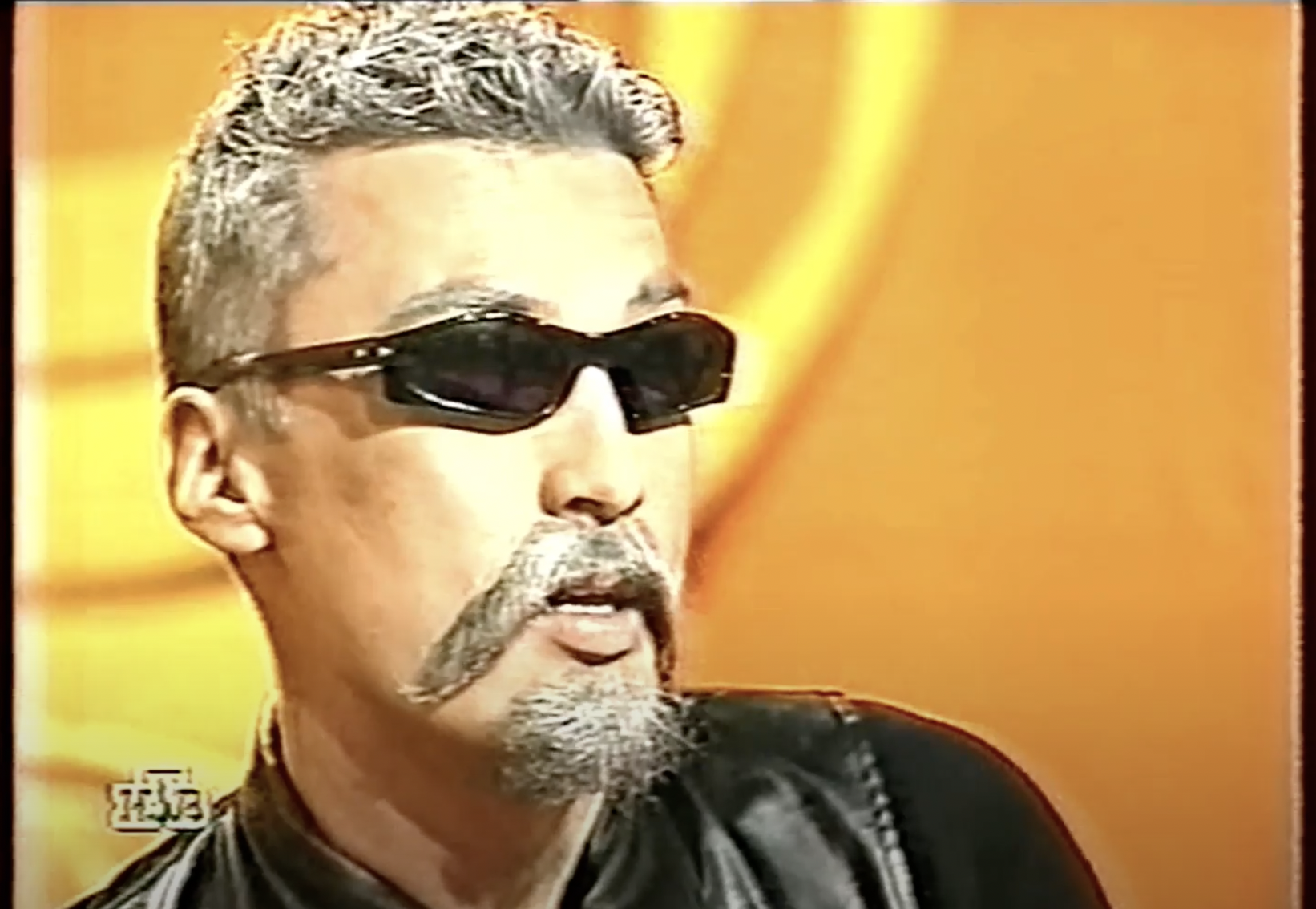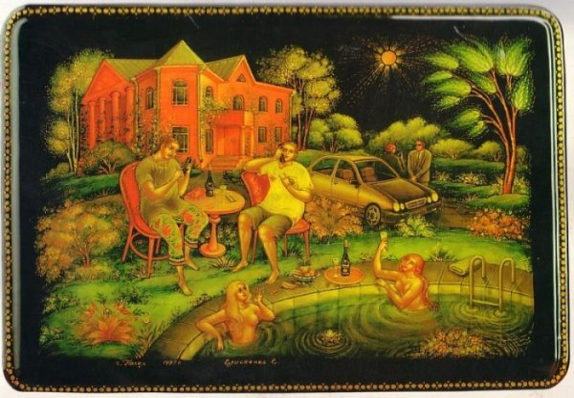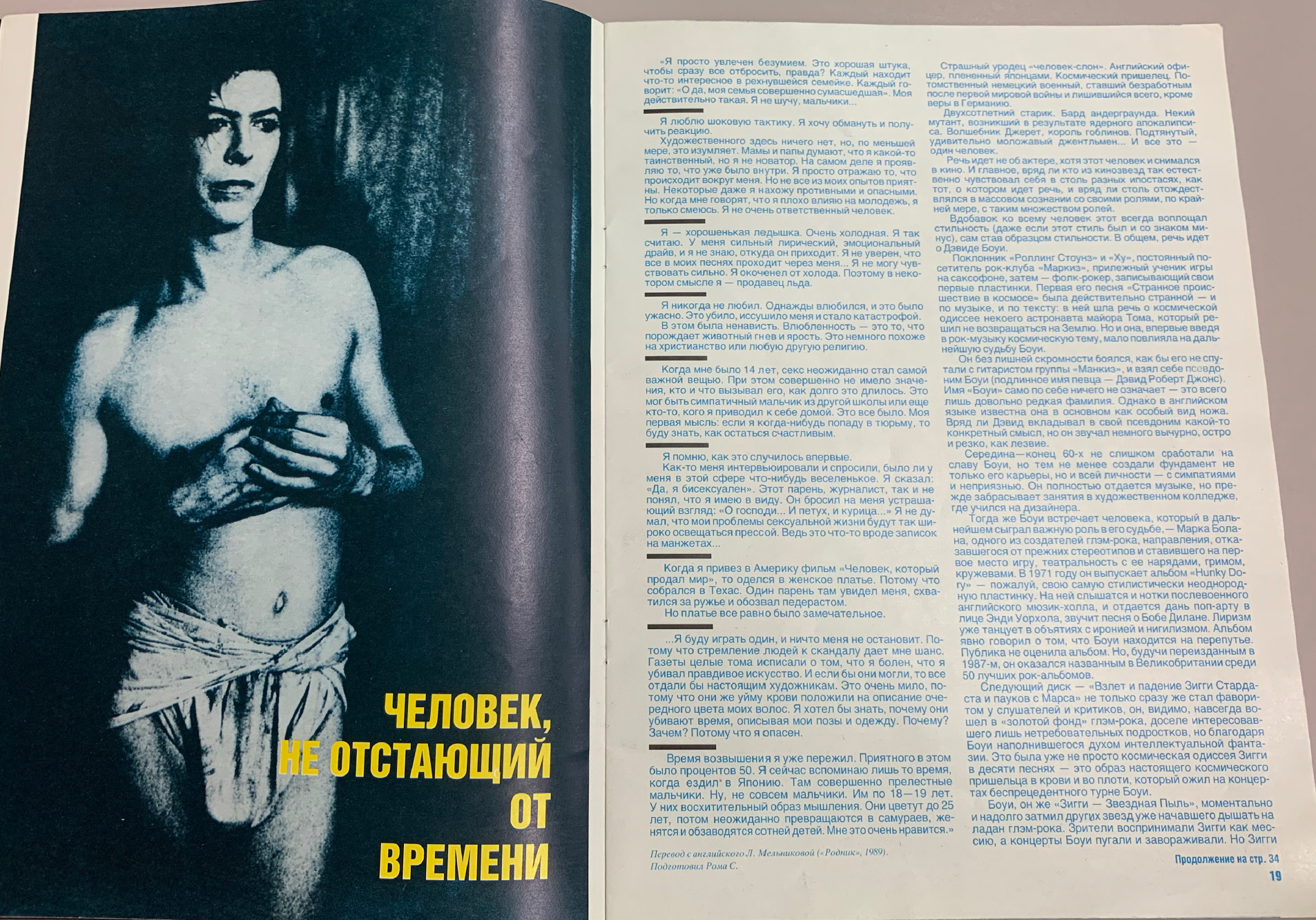Olympic Stadium Book Market
The center of the post-Soviet book trade established itself in the corridors of the enormous stadium built for the 1980s summer Olympic Games in Moscow. It was chaotic, even dangerous, but also presented an embarrassment of literary riches.
Solzhenitsyn's Return
In 1994, Alexander Solzhenitsyn staged a theatrical return to Russia, flying from America to Magadan, then returning by train from Vladivostok to Moscow. The journey and the salvific importance Solzhenitsyn attached to it soon became the target of much derision, as well as some praise.
Project O.G.I.
A literary club founded by the United Humanitarian Publishers (OGI) in 1998 in the apartment of journalist and music critic Dmitrii Olshansky (1978-), Proekt OGI represented one of the more successful attempts to reclaim the late-Soviet underground in the new, post-Soviet, capitalist world.
Male Prostitution on “Pro eto”
A clip from an episode on male prostitution featured on the talk show Pro eto (About That, 1997-2000) hosted by journalist Yelena Khanga (1962-).
The World of New Russians store, Palekh-style tray
A World of New Russians lacquered tray depicts several wealthy criminal businessmen, their bodyguards and their nude female companions enjoying luxury living in a private pool, near a private mansion, all depicted in the style of Russian folk art.
A Man Who Keeps Up with the Times
An undated 1990s-era piece on David Bowie, focusing on the star’s bisexuality, in the glossy color gay magazine Mal’chishnik (Stag Party).
